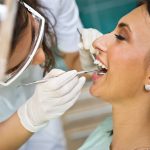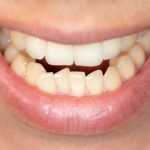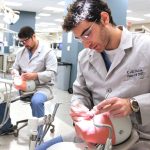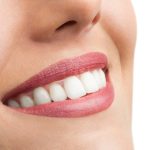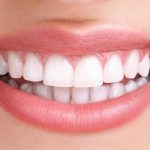Cow Teeth 101: How Many Teeth Do Cows Have and Why It Matters

Cows have long been an essential part of human civilization, providing us with milk, meat, and leather. However, their teeth are often overlooked and underappreciated. Cow teeth not only play a significant role in their digestion and overall health, but they also provide valuable insights into their age and breeding cycle. In this article, we will delve into the fascinating world of cow teeth, exploring how many teeth cows have, their structure, and why it matters. Understanding cow teeth is crucial for farmers, veterinarians, and anyone who works with these animals. A cow’s teeth undergo a complex process of growth and wear throughout their life, and different teeth serve different purposes. By knowing the basics of cow teeth, you can detect early signs of dental problems, assess the age and health of the animal, and make informed decisions about breeding and feeding. So, let’s put on our dental hats and dive into the world of cow teeth!
Cows are fascinating animals that have a unique set of teeth that are well-suited for their herbivorous diet. These ruminants have 32 teeth in total, with no upper front teeth and a dental pad instead. The dental pad, which is made of tough tissue, serves as a replacement for upper front teeth, allowing cows to grasp and pull grasses into their mouths. Their molars and premolars are well-developed and have ridges that enable them to grind and crush tough plant materials. Cows’ teeth also play an essential role in their digestive system, as they help break down food before it enters their four-chambered stomach. Understanding cow teeth is crucial for farmers and animal enthusiasts alike, as it can help in assessing an animal’s health and nutrition.
Understanding cow teeth is crucial for both farmers and veterinarians as it plays a significant role in the overall health and productivity of cows. Cow teeth have a unique structure, and their dental formula varies from other animals, making it essential to have specialized knowledge to identify any issues related to their teeth. Farmers must ensure that their cows have healthy teeth and are receiving proper nutrition, as teeth problems can lead to reduced milk production, weight loss, or even death. Similarly, veterinarians need to have a comprehensive understanding of cow teeth to diagnose and treat any dental issues, such as tooth decay, broken teeth, or abscesses, that may affect the animal’s overall health. Thus, understanding cow teeth is crucial for maintaining the well-being of cows and ensuring their productivity.
How Many Teeth Do Cows Have?

Cows are herbivores and their teeth are specifically designed to grind and break down tough plant fibers. The number of teeth in a cow’s mouth is quite impressive, with a total of 32 teeth in their adult life. These teeth are divided into two main groups, the front teeth, also known as incisors, and the back teeth, which are molars and premolars. The front teeth of a cow are used to bite and tear grass while the molars are used to grind and chew food for easier digestion. The dental formula for cows is 0/3 incisors, 3/3 pre-molars, and 3/3 molars on the upper jaw, and 3/3 incisors, 3/3 pre-molars, and 3/3 molars on the lower jaw. This formula indicates that cows have a total of 32 teeth with a significant difference from the human dental formula. The teeth of cows continue to grow throughout their lifetime to compensate for the constant wear and tear caused by grinding tough vegetation. As such, cows need to constantly chew on food to prevent their teeth from overgrowing and causing discomfort, which may lead to malnutrition and weight loss. In conclusion, understanding the number and function of a cow’s teeth is crucial in managing their health and ensuring their well-being. Farmers and livestock owners should be keen on providing their cows with a balanced diet to maintain their dental health. Overgrown teeth can cause painful complications that negatively impact the cow’s health and productivity. Knowing the number of teeth cows have is just the beginning of a comprehensive understanding of their dental health. Proper dental care and nutrition are essential to ensure that cows remain healthy and productive throughout their lifetime.
The dental formula of a cow, like all ruminants, is unique and plays a significant role in its digestion process. Cows have a total of 32 teeth, with no upper incisors, and a dental formula of 0/3 3/3 3/3 3/3. This means they have no upper front teeth, but three incisors on each side of the lower jaw. The molars and premolars of the cow’s mouth are specialized for grinding and crushing tough plant material, which is essential for their digestion process. Understanding the cow’s dental formula is crucial for proper cow health and nutrition management, as dental problems can lead to reduced feed intake and poor growth rates.
Cows, like many other mammals, have two sets of teeth in their lifetime: deciduous teeth, also known as milk teeth, and permanent teeth. Deciduous teeth start to appear in calves at around two weeks of age and consist of 20 teeth, 10 on the upper jaw and 10 on the lower jaw. These teeth are eventually replaced by permanent teeth, which are larger and stronger. Adult cows have 32 permanent teeth, with 8 incisors at the front of their mouths used for biting and grasping food, and 24 molars at the back of their mouths used for grinding and chewing. The number and types of teeth that cows have are important to their overall health and productivity, as they rely on their teeth to effectively digest and utilize their feed.
Although adult and baby cow teeth serve the same purpose, there are some notable differences between them. Firstly, adult cows have a total of 32 teeth, while baby cows have only 20. Secondly, adult cow teeth are larger and stronger than baby cow teeth, as they need to be able to handle tougher and coarser food. Thirdly, adult cow teeth have a more complex structure with ridges and cusps that allow them to grind their food more efficiently, while baby cow teeth are simpler and smoother. These differences in teeth between adult and baby cows reflect the developmental stages and nutritional requirements of each age group.
Why Cow Teeth Matter
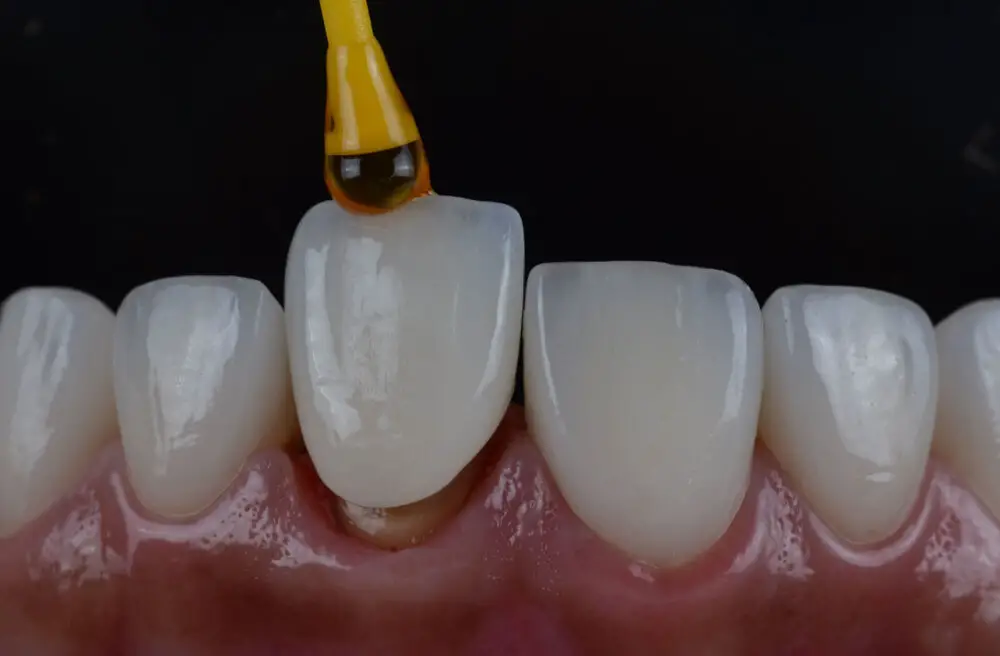
Cow teeth are an essential aspect of their digestive system. These teeth are designed to grind and break down tough, fibrous plant material, such as grass and hay. Cows have a unique set of teeth that allow them to graze efficiently, with their lower jaw moving back and forth in a circular motion. They have 32 teeth in total, with a combination of incisors, molars, and premolars. Incisors are located at the front of the mouth and are used for biting and cutting, while molars and premolars are situated towards the back and are responsible for grinding and crushing food. The condition of a cow’s teeth can significantly impact its overall health and wellbeing. If their teeth become worn or damaged, they may struggle to chew and digest their food, leading to weight loss and malnutrition. Regular dental check-ups are vital for maintaining healthy teeth and ensuring that cows can consume the necessary nutrients for growth and development. Proper nutrition is crucial for the production of high-quality milk and meat, which is why it’s essential to pay attention to the health of a cow’s teeth. In conclusion, cow teeth matter because they play a significant role in the cow’s digestive system and overall health.
Nutrition and digestion are crucial aspects of a cow’s life, as they directly impact the animal’s overall health and productivity. Cows are ruminants, meaning they have a four-chambered stomach that allows them to break down tough plant fibers using a process called fermentation. The process requires a complex interplay between the cow’s saliva, rumen microbes, and digestive enzymes, all of which are heavily influenced by the quality and quantity of the cow’s diet. Proper nutrition ensures that the cow has the necessary nutrients to maintain healthy bodily functions, while efficient digestion maximizes the energy and nutrient yield from the feed. Therefore, understanding the importance of nutrition and digestion is crucial for farmers and ranchers who want to optimize their herd’s health and productivity.
The relationship between teeth and diet is crucial for the survival and well-being of animals. In the case of cows, their teeth play a vital role in processing a diet that consists primarily of grasses and roughage. Cows have a unique set of teeth adapted to their herbivorous diet, including molars and premolars that are used for grinding and chewing tough plant materials. Additionally, cows have a dental pad that acts as an additional grinding surface to help break down food. The number and structure of cow teeth are essential to their health, as they rely on these teeth to efficiently extract the necessary nutrients from their diet. Therefore, it is essential to understand the relationship between cow teeth and their diet to ensure their proper care and nutrition.
Dental issues in cows can have a significant impact on their overall health and productivity. The cow’s teeth play a crucial role in their ability to properly digest their food, which is essential for maintaining their body weight and energy levels. If a cow’s teeth are not healthy or they have dental problems, they may experience difficulty eating, leading to weight loss, decreased milk production, and overall poor health. Additionally, dental issues can cause pain and discomfort, which can lead to stress and decreased immunity, making them more susceptible to illness. Therefore, it is crucial to ensure proper dental care for cows to maintain their health and productivity levels.
Caring for Cow Teeth
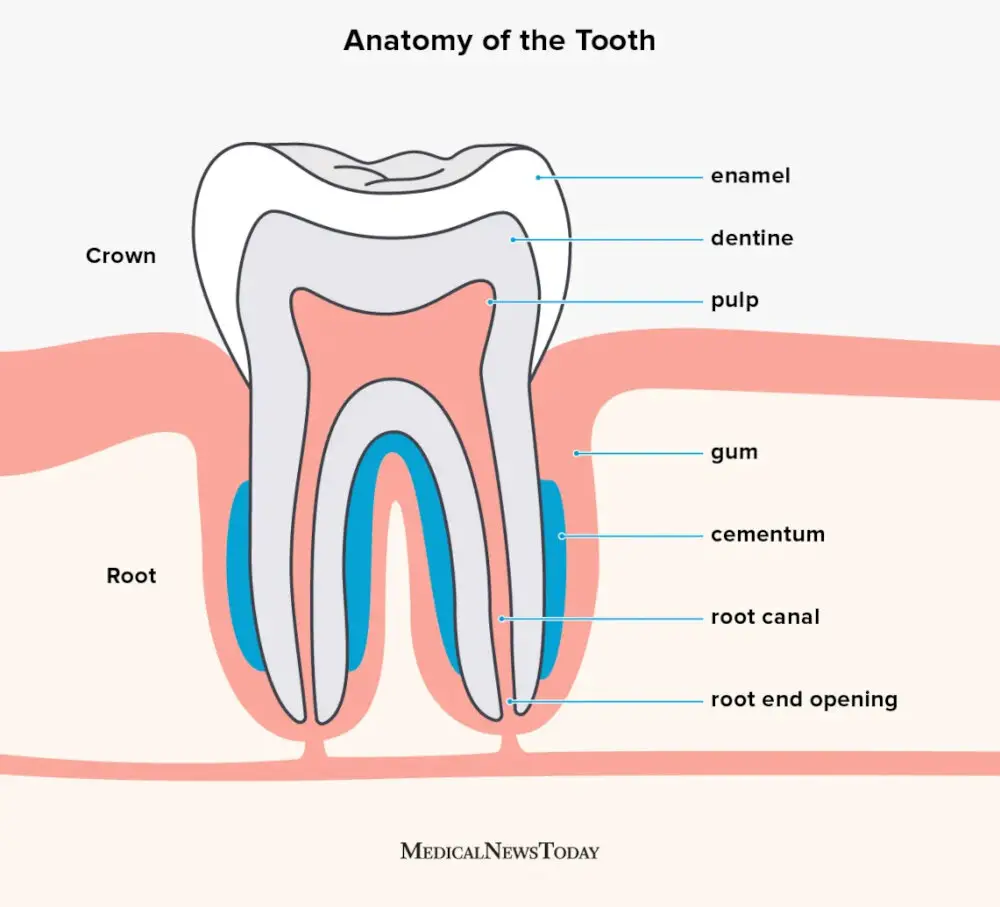
Cows, like any other animals, need proper dental care to ensure their overall health and well-being. Caring for cow teeth is not only crucial for their digestive system but also for their ability to graze and chew their food. Proper dental care for cows involves regular check-ups by a veterinarian, a balanced diet that includes roughage, and proper cleaning of their teeth and gums. As cows have a complex dental system, it is important to understand their teeth structure and how to maintain it properly. As cows have a total of 32 teeth, including incisors, molars, and premolars, their dental care should be taken seriously to prevent any dental diseases or infections. Regular check-ups by a veterinarian can help detect any dental problems early on and provide necessary treatment. A balanced diet that is rich in roughage, such as hay and grass, is also essential for their dental health as it helps wear down their teeth and prevent overgrowth. Additionally, proper cleaning of their teeth and gums can also reduce the risk of dental problems. Using a soft-bristled brush and a veterinary-approved toothpaste can help keep their teeth and gums clean and healthy. Overall, good dental care for cows is crucial for their overall health and well-being.
Prevention and treatment of dental problems in cows are essential for maintaining their overall health and productivity. Regular dental check-ups and maintenance, including floating and filing, can prevent dental issues such as overgrown or misaligned teeth. Additionally, providing cows with a proper diet and sufficient access to clean water can also help prevent dental problems. In the event of dental issues such as tooth decay or infection, prompt treatment by a veterinarian is necessary to prevent further complications. Timely intervention can help ensure that cows are able to continue eating and digesting food properly, which in turn helps to maintain their weight and overall health.
Proper feeding and nutrition play an essential role in maintaining healthy teeth in cows. A balanced diet rich in essential nutrients such as calcium, phosphorus, and vitamin D is necessary for healthy teeth development. Due to their unique digestive system, cows require a diet that is high in roughage, including hay and grass, to promote proper chewing and grinding of food, which ultimately helps maintain healthy teeth. In addition to providing a balanced diet, regular dental checkups and appropriate dental care, such as teeth cleaning and filing, can help prevent tooth decay and other oral health issues in cows. Therefore, it is crucial to pay attention to the cow’s diet and oral health to ensure healthy teeth, which ultimately contributes to their overall well-being and productivity.
Regular dental checkups are crucial for maintaining the overall health and well-being of cows. Cows rely heavily on their teeth to chew and grind their food, which is necessary for proper digestion and nutrient absorption. Without regular dental checkups, cows can suffer from a variety of dental problems, including tooth decay, gum disease, and tooth loss, all of which can have a significant impact on their ability to eat and digest food. In addition, dental issues can also lead to other health problems, such as abscesses and infections, making it essential to catch and treat these issues early on. By scheduling regular dental checkups for cows, farmers can ensure that their animals are healthy, happy, and able to thrive.
In conclusion, understanding the dental anatomy of cows is crucial for maintaining their health and productivity. Cows have a total of 32 teeth, including incisors, premolars, and molars, which serve different functions in their digestion and feeding habits. The development and eruption of these teeth follow a specific pattern, with the first permanent incisors appearing at around 2.5 years of age. It is essential to monitor the condition of cows’ teeth regularly, as any abnormalities or dental diseases can affect their feed intake, milk production, and overall well-being. By providing adequate dental care and nutrition, farmers can ensure that their cows have healthy teeth and maintain optimal performance on the farm.
In conclusion, understanding cow teeth is of utmost importance in the agriculture industry. It not only helps farmers in determining the proper feeding and management practices but also aids in identifying any health issues that may arise. A thorough knowledge of cow teeth helps farmers in providing their animals with a balanced and nutritious diet, which is crucial for their overall health and productivity. Moreover, identifying any dental problems at an early stage can prevent the spread of infections and diseases among the herd. Therefore, having a clear understanding of cow teeth is essential for the success of any livestock operation, and farmers should strive to educate themselves on this critical aspect of animal husbandry.
Conclusion
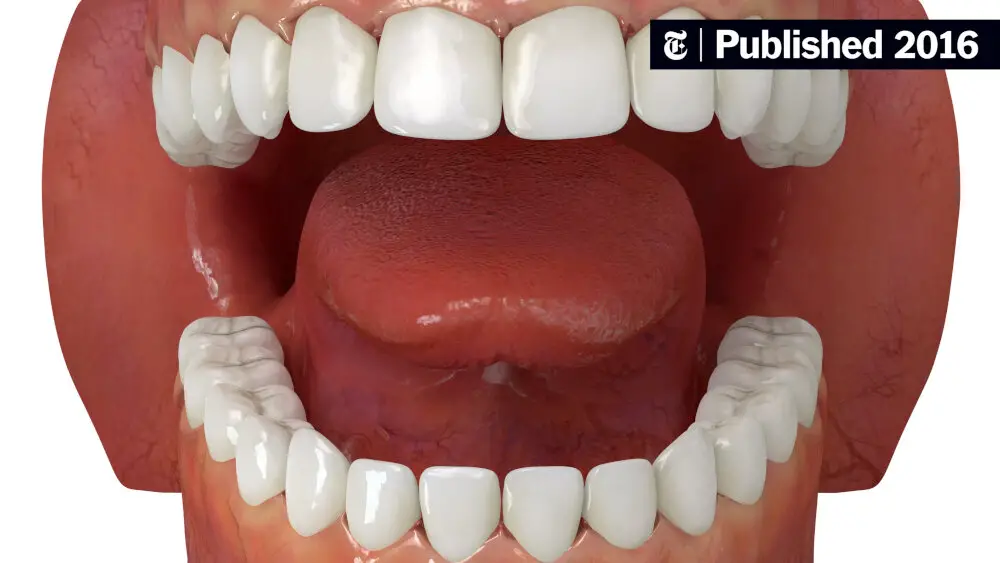
In conclusion, understanding the dental anatomy of cows and the number of teeth they have is crucial for their overall health and well-being. Cows are unique in their dental structure, with four types of teeth that serve specific functions in their digestive process. The presence of teeth also plays a significant role in determining the age of a cow and can indicate potential health issues. It is essential for farmers and caretakers to regularly check the dental health of their cows to ensure proper nutrition and prevent any dental-related problems. By taking the necessary steps to maintain their dental health, cows can lead a happy and healthy life, ultimately benefiting both the animal and the farmer.

